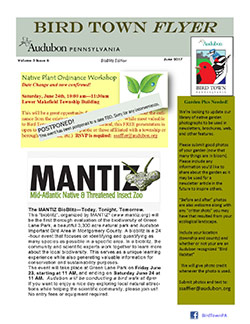
FOR IMMEDIATE RELEASE
June 2, 2017
Harrisburg, PA – Acting Secretary of Drug and Alcohol Programs (DDAP) Jennifer Smith and Pennsylvania Department of Transportation (PennDOT) Secretary Leslie S. Richards today urged Pennsylvania drivers not to mix prescription drugs and driving, and offered safe driving recommendations for those taking medications.
“People may think impaired driving means driving after drinking alcohol,” DDAP Acting Secretary Jennifer Smith said. “But it also refers to the use of medications, both prescription and over-the-counter, which cause slowed reflexes, blurred vision, or drowsiness and dizziness. Drugs can affect people differently based on, among other things, their age and weight, both of which can influence how a person absorbs the chemicals.”
“Our ongoing message not to drink and drive is helping reduce DUI crashes and fatalities, but we must broaden our cautions to include medications that can have similar devastating impacts on drivers,” PennDOT Secretary Leslie Richards said. “In Pennsylvania, driving under the influence can mean driving under the influence of alcohol, prescription or other drugs, or both. Prescription drug usage either by itself or with alcohol is not safe and can lead to crashes, which can be fatal for both the person under the influence and other innocent drivers and passengers.”
“Opioid painkillers and benzodiazepines for anxiety or insomnia may be the drugs most likely to impair driving,” said Smith. “But several other drugs can also affect driving such as antibiotics, antihistamines, diuretics and antidepressants.”
According to a study released in April by the Governors Highway Safety Association, drugs were present in fatally injured drivers more frequently than alcohol was present, demonstrating the growing problem of drug-impaired driving. The report noted that hundreds of different drugs can impair drivers.
“The bottom line is that drugs are dangerous. They can impair your ability to drive. They can cause you to have an accident, which could prove to be fatal to you and others,” said Smith.
“It is your responsibility as a driver to find out how drugs can affect your cognitive and driving abilities,” Richards said. “You may want to ask your doctor, your pharmacist or another health care professional for help. Seniors, who may be taking several drugs, need to check on the interactions of drugs, and possibly herbal supplements and different foods.
“Drivers should remember that anything that affects your ability to drive safely could cause you to be guilty of driving under the influence.”
The departments offered these safe driving recommendations for those taking medications:
- Avoid driving if you don’t know how a drug affects you.
- Take your medicine at the prescribed doses and at the prescribed intervals.
- If you are tired, sick or disoriented, don’t drive.
- Plan your driving around medication dosages and drive when you are least likely to present side effects.
- Never combine medication(s) and alcohol.
- If you need to travel and don’t feel comfortable driving, take public transportation or call for a driver.
If you or someone you know is suffering from the disease of addiction, call 1-800-662-HELP or visit www.pa.gov/opioids for treatment options.
MEDIA CONTACTS: DDAP: Carol Gifford, 717-547-3314
PennDOT: Rich Kirkpatrick, 717-783-8800
###


